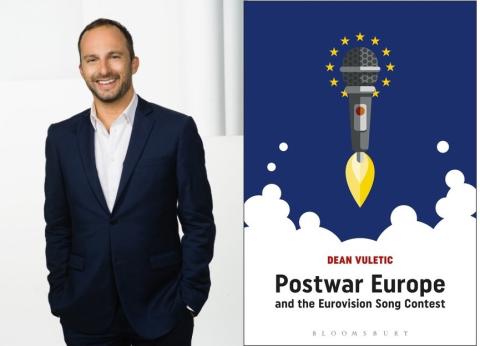The Politics of the Eurovision Song Contest
The Eurovision Song Contest ought to be non-political. But historian Dean Vuletic, world’s foremost academic expert on the history of the Eurovision Song Contest, tells us an opposite story. He will address why the contest has been so politically significant and what the edition of 2021 tells us about the Europe of today. (English / SG-Certificate*)
Time: 16:00-17:00 hrs. Online via Zoom
This lecture is part of the series 'All You Need To Know About...' Expand your knowledge with one-hour lectures by the most relevant speakers!
Collaboration
The annual Eurovision Song Contest is one of the world’s longest-running and most popular television shows, having been first staged in 1956. The European Broadcasting Union, the Eurovision Song Contest’s organizer, has always maintained that the contest is a non-political event that promotes cooperation among the European Broadcasting Union’s members. These are national public service broadcasting organizations from Europe and the Mediterranean rim.
Politics
Yet, as entries in the Eurovision Song Contest represent states, the contest has always reflected political relations in Europe. It has also been appropriated by governments in their cultural diplomacy, from the right-wing dictatorship of Spain’s Francisco Franco in 1969 to the Israeli example in 2019.
Today’s Europe
This year, the politics of the contest has been marked by issues such as the anti-government protests in Belarus and the global Black Lives Matter and Me Too movements. In his talk, Dr. Dean Vuletic, the world’s foremost academic expert on the history of the Eurovision Song Contest, will address why the contest has historically been so politically significant and what it tells us about the Europe of today.
Speaker
Dean Vuletic is a historian of contemporary Europe based in the Research Center for the History of Transformations at the University of Vienna. After receiving his doctoral degree in history from Columbia University, he designed the world’s first-ever university course on the Eurovision Song Contest, which he began teaching at New York University.
As a Lise Meitner Fellow, Vuletic has also led a research project on the history of Eastern Europe’s Cold War-era Intervision Song Contest.

Dean is the author of ‘Postwar Europe and the Eurovision Song Contest’ (London: Bloomsbury, 2018), the only scholarly monograph on the history of the contest, which he produced under a Marie Skłodowska-Curie Intra-European Fellowship. He is a leading media commentator and public speaker on the Eurovision Song Contest.
More information
This lecture is organized by Studium Generale.
Contact: Has Klerx (Studium Generale).
* For students, this event may count towards the SG-Certificate. Check the SG-Certificate website for all the terms and conditions.
